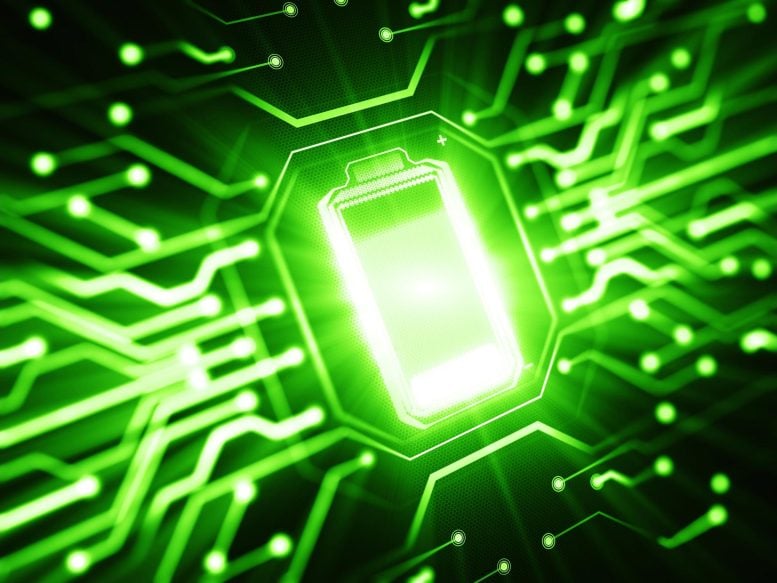
A groundbreaking advancement in battery technology offers a dual benefit of efficient energy storage and CO2 capture, made possible by a new catalyst development system.
New technology could lead to batteries that store energy and capture CO2, offering a significant advancement in environmental technology.
Efficient and cheap batteries that can also capture harmful emissions could be right around the corner, thanks to a new system that speeds up the development of catalysts for lithium-CO2 (Li-CO2) batteries.
The technology has been developed by the University of Surrey,
In the study, researchers used their tool to test and screen materials like platinum, gold, silver, copper, iron, and nickel to easily investigate whether they would be suitable candidates for developing high-performing Li-CO2 batteries.
Dr. Kai Yang, corresponding author of this work, project co-leader and Lecturer from the Advanced Technology Institute at the University of Surrey, explained:
“We have created a cutting-edge lab-on-a-chip electrochemical testing platform that can do multiple things at the same time. It helps evaluate electrocatalysts, optimize operation conditions, and study CO2 conversion in high-performance lithium-CO2 batteries. This new method is more cost-effective, efficient, and controllable than traditional ways of making these materials.”
Li-CO2 batteries are a promising new type of battery that work by combining lithium and carbon dioxide; they not only store energy effectively but also offer a way to capture CO2, potentially making a dual contribution to the fight against climate change.
Dr. Yunlong Zhao, the lead corresponding author of this study and a Senior Lecturer at Imperial College London, the National Physical Laboratory, and visiting academic from the University of Surrey, said:
“It is crucial that we develop new negative emissions technologies. Our lab-on-a-chip platform will play a crucial role in advancing this goal. It will not only enhance our understanding of novel batteries, but it can also be applied to other systems like metal-air batteries, fuel cells, and photoelectrochemical cells.
“This new tool will enable quick screening of catalysts, studying reaction mechanisms, and practical applications, from nanoscience to cutting-edge carbon removal technologies.”
The study has been published by Energy and Environmental Science.
Reference: “Developing highly reversible Li–CO2 batteries: from on-chip exploration to practical application” by Manman Wang, Kai Yang, Yuchen Ji, Xiaobin Liao, Guangpeng Zhang, Mateus G. Masteghin, Nianhua Peng, Filipe Richheimer, Huanxin Li, Jianan Wang, Xinhua Liu, Shichun Yang, Enrico Petrucco, Paul Shearing, Fernando A. Castro, S. Ravi P. Silva, Yan Zhao, Feng Pan and Yunlong Zhao, 21 July 2023, Energy & Environmental Science.DOI: 10.1039/D3EE00794D